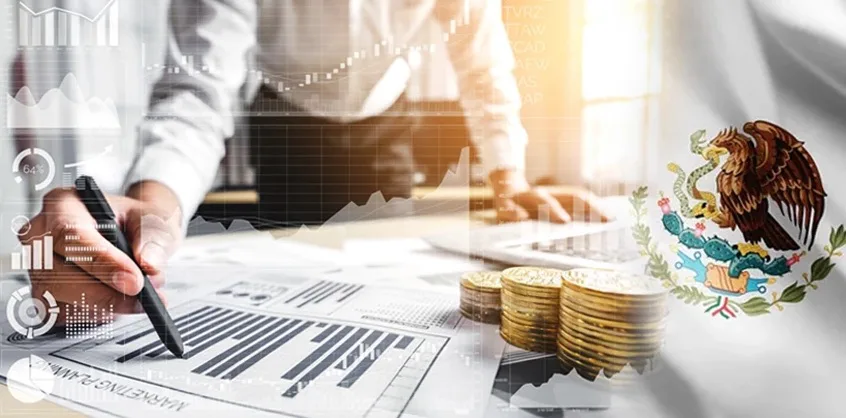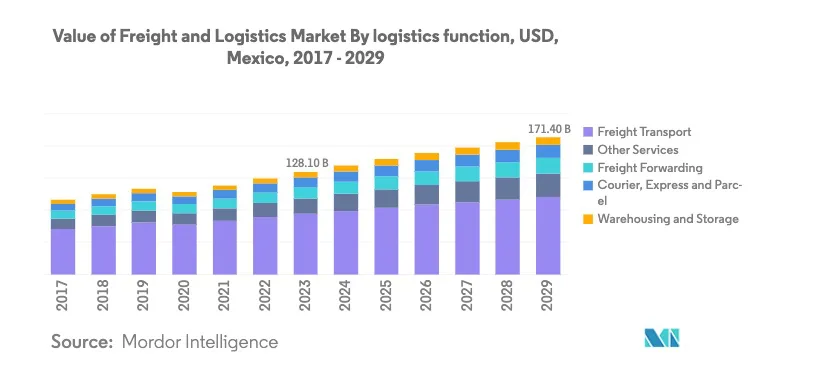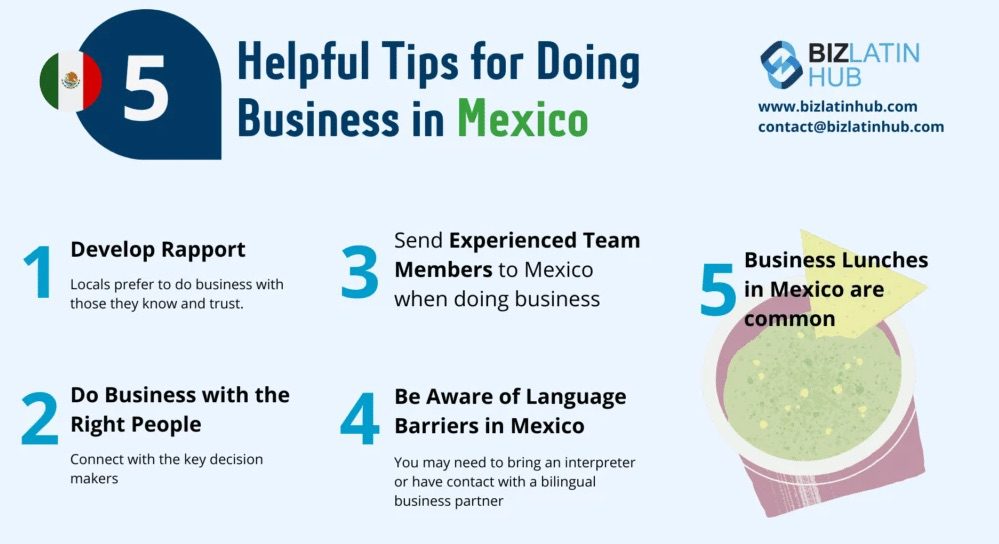Last Updated on April 1, 2024

Investing in Mexico's manufacturing sector can be lucrative, yet comes with inherent risks. However, with the right strategies, investors can navigate these risks effectively. Mitigating risks in Mexico's manufacturing sector requires a comprehensive understanding of market dynamics, the regulatory environment, and cultural nuances. This article explores essential strategies for investing safely in Mexico's manufacturing sector.
Understanding Mexico's Manufacturing Landscape
Mexico's manufacturing sector has experienced significant growth in recent years, becoming a key player on the global market. From automotive to aerospace, Mexico offers diverse investment opportunities across various industries. Understanding the landscape is crucial for identifying potential risks and opportunities.
Investors should analyze market trends, competitive dynamics, and consumer behavior to make informed decisions on Mexico's manufacturing sector. By leveraging market research and industry insights, investors can identify emerging sectors with high growth potential while mitigating potential risks.
Economic and Political Stability
Economic and political stability influence investment decisions. Mexico's stable economy and favorable trade agreements make it an attractive destination for foreign investment. Political uncertainties and regulatory changes can impact investor confidence.
The Investor's Role
To mitigate risks associated with political instability, investors should stay informed about geopolitical developments, regulatory changes, and government policies in Mexico. Diversifying investment portfolios across different sectors and regions can also mitigate political uncertainties.
Legal and Regulatory Compliance
Navigating Mexico's legal and regulatory landscape is essential for mitigating risks and ensuring compliance. Investors must familiarize themselves with local laws, labor regulations, tax policies, and intellectual property rights.
The Investor's Role
Partnering with legal experts and local advisors who experts in Mexico can provide valuable insights into regulatory compliance and risk mitigation strategies. Conducting thorough due diligence and legal analysis before making investment decisions can avoid potential litigation disputes and financial penalties.
Operating a business in Mexico requires a comprehensive understanding of the country’s multifaceted regulatory landscape. Numerous regulations influence different aspects of business operations, and compliance with these laws is essential to ensure long-term success while maintaining ethical practices. Labor laws form a critical aspect of Mexican business regulations. These encompass provisions related to employment contracts, wages, working hours, occupational health and safety standards, social security contributions, and employee benefits. Staying abreast of labor laws guarantees fair treatment for employees while protecting the interests of employers.
One Alliance Group
Supply Chain Management
Effective supply chain management is critical for success in Mexico's manufacturing sector. Building resilient supply chains can mitigate risks associated with disruptions, delays, and quality issues. Implementing robust inventory management systems, diversifying suppliers, and establishing contingency plans are essential strategies for managing supply chain risks.
The Investor's Role
Investors should also evaluate the reliability of logistics infrastructure, transportation networks, and customs procedures in Mexico to ensure smooth operations and timely goods delivery. By optimizing supply chain processes and leveraging technology, investors can enhance efficiency and mitigate operational risks.

Source: Mordor Intelligence
Labor Relations and Workforce Development
Labor relations and workforce dynamics play a significant role in Mexico's manufacturing sector. Maintaining positive relations with employees, unions, and labor organizations is essential for productivity, stability, and compliance with labor laws.
The Investor's Role
Investors should prioritize companies in Mexico that have workforce development initiatives, training programs, and talent acquisition strategies to attract skilled workers and foster a culture of continuous improvement. By investing in employee engagement and professional development, companies can enhance operational efficiency and mitigate risks associated with labor disputes and turnover.
Environmental and Sustainability Practices
Environmental sustainability in Mexico is increasingly a priority for investors and consumers alike. Implementing eco-friendly practices and sustainable manufacturing processes reduce environmental impact, mitigate reputational risks and enhances brand value.
The Investor's Role
Investors should integrate environmental considerations in Mexico into their investment strategies and adopt sustainable practices across the supply chain. Investing in renewable energy, waste management solutions, and green technologies can drive long-term value creation while mitigating environmental risks.
Market Entry Strategies
Choosing the right market entry strategy is crucial for success in Mexico's manufacturing sector. Whether establishing a wholly-owned subsidiary, forming strategic partnerships, or pursuing joint ventures, investors must carefully evaluate the benefits and risks associated with each approach.
Conducting market research, assessing competitor strategies, and understanding consumer preferences can help investors identify the most viable market entry strategy. By leveraging market insights and industry expertise, investors can optimize their market entry efforts and mitigate risks associated with market saturation and competitive pressures.
Successful market entry into Mexico is not entirely different from building sales channels in the United States. Start by establishing an agent, representative, or authorized distributor for products and services in Mexico or opening a representative office. Given the size of the market, the strategy should consider specific regional territories. Most firms assign Mexican agents or distributors in different locations. Many companies find it works well to use three or four specific territories, often centered in Mexico City for central and southern Mexico, in Guadalajara for western Mexico, in Monterrey for northeastern Mexico, and in Baja California for the northwestern border and maquiladora (export manufacturing) zones.
International Trade Administration
Financial Risk Management
Effective financial risk management is essential for safeguarding investments and maximizing returns. Investors should develop robust financial risk management strategies for Mexico, including hedging against currency fluctuations, diversifying investment portfolios, and maintaining adequate liquidity reserves.
The Investor's Role
Conducting thorough financial analyses, monitoring market trends, and assessing investment performance can help investors identify potential risks and opportunities in Mexico manufacturing. By adopting a proactive approach to financial risk management, investors can mitigate downside risks and capitalize on emerging market trends.
Technology and Innovation Adoption
Embracing technology and innovation is key to staying competitive in Mexico's manufacturing sector. Investing in advanced manufacturing technologies, automation solutions, and digital transformation initiatives can enhance productivity, efficiency, and product quality.
The Investor's Role
By leveraging data analytics, artificial intelligence, and Internet of Things (IoT) technologies, manufacturers can optimize operations, minimize downtime, and mitigate risks associated with process inefficiencies and production bottlenecks. Embracing a culture of innovation and continuous improvement is essential for driving sustainable growth and mitigating technological risks.
Cross-Cultural Management
Cross-cultural management is paramount to success in Mexico's diverse business environment. Building strong relationships, understanding cultural nuances, and fostering open communication are essential for effective collaboration and mutual understanding.

The Investor's Role
Investors should invest in manufacturing companies in Mexico that promote cross-cultural training and diversity competency programs to bridge cultural gaps and promote inclusivity within the organization. By embracing diversity and cultural diversity, companies can leverage their workforce's collective strengths and mitigate risks associated with miscommunication and cultural misunderstandings.
Crisis Preparedness and Contingency Planning
Crisis preparedness and contingency planning for investing in Mexico are critical for mitigating risks and ensuring business continuity. From natural disasters to geopolitical tensions, companies must anticipate potential crises and develop comprehensive contingency plans to mitigate their impact.
The Investor's Role
Conducting risk assessments, scenario planning exercises, and tabletop simulations can help companies identify vulnerabilities and develop proactive response strategies. The Mexico-United States Joint Contingencies and Emergencies Plan should be thoroughly reviewed by companies. By establishing clear communication protocols and escalation procedures, companies can minimize disruptions and protect their assets, employees, and reputation during times of crisis.
Ethical and Corporate Social Responsibility
Ethical conduct and corporate social responsibility are integral to building trust and credibility in Mexico's manufacturing sector. Companies must uphold high ethical standards, promote transparency, and demonstrate commitment to social and environmental stewardship.
The Investor's Role
Investors should integrate ethical considerations and corporate social responsibility into their investment criteria and due diligence processes for potential investment targets in Mexico. By supporting community development initiatives, promoting fair labor practices, and embracing sustainable business practices, companies can enhance their reputation and mitigate risks associated with ethical misconduct and social unrest.
Conclusion: A Proactive and Multidimensional Approach
Mitigating risks for investing safely in Mexico's manufacturing sector requires a proactive and multidimensional approach. By understanding the market landscape, complying with legal and regulatory requirements, optimizing supply chain processes, and embracing innovation, investors can navigate challenges and capitalize on opportunities for long-term success.
Investing safely in Mexico's manufacturing sector requires diligence, resilience, and a commitment to continuous improvement. By adopting a holistic risk management mindset and leveraging industry best practices, investors can mitigate risks, maximize returns, and contribute to the sustainable growth and development of Mexico's economy.
FAQs on Investing Safely in Mexico's Manufacturing Sector
- What are the key risks associated with investing in Mexico's manufacturing sector? Risks associated with investing in Mexico's manufacturing sector include political instability, regulatory changes, supply chain disruptions, labor disputes, environmental challenges, and currency fluctuations.
- How can investors mitigate political risks in Mexico's manufacturing sector? Investors can mitigate political risks by staying informed about geopolitical developments, diversifying investment portfolios, and establishing contingency plans to adapt to changing political environments.
- What role does technology play in mitigating risks in Mexico's manufacturing sector? Technology plays a crucial role in mitigating risks by improving operational efficiency, enhancing product quality, and optimizing supply chain processes. Embracing digital transformation initiatives can help companies stay competitive and resilient in dynamic market environments.
- How can companies promote ethical conduct and corporate social responsibility in Mexico's manufacturing sector? Companies can promote ethical conduct and corporate social responsibility by upholding high ethical standards, supporting community development initiatives, and embracing sustainable business practices. By demonstrating a commitment to social and environmental stewardship, companies can enhance their reputation and mitigate risks associated with ethical misconduct.
- What are some best practices for crisis preparedness and contingency planning in Mexico's manufacturing sector? Best practices for crisis preparedness include conducting risk assessments, scenario planning exercises, and tabletop simulations to identify vulnerabilities and develop proactive response strategies. Establishing clear communication protocols and escalation procedures is essential for minimizing disruptions and protecting assets during times of crisis.
- How can investors navigate cultural differences in Mexico's manufacturing sector? Investors can navigate cultural differences by investing in cross-cultural training and cultural competency programs to foster understanding and collaboration across diverse teams. Building strong relationships and promoting open communication are essential for bridging cultural gaps and mitigating risks associated with miscommunication.
About NovaLink
As a manufacturer in Mexico, NovaLink employs a unique approach that transcends the traditional model of shelter production. More than just the location of your manufacturing, we would like to become a partner in your manufacturing in Mexico. You will be able to relocate or initiate manufacturing for your company in Mexico in a low-cost labor environment with very little delay or up-front costs. Find out how we can help you by handling the manufacturing process.
There are NovaLink facilities in the border cities of Brownsville, Texas, Matamoros, Mexico, and Saltillo, Mexico.
Explore More: Discover Related Blog Posts
Expand your knowledge and delve deeper into more information about investing in Mexico manufacturing with our curated collection of related blog posts.
- Mexico Rewards Manufacturing Companies That Commit: Here’s Why
- Can Moving Manufacturing to Mexico Really Be Turnkey? Here’s What You Need to Know
- How U.S. Tariffs Are Reshaping Mexico’s Manufacturing Outlook
- 3 Key Benefits of Operating in Mexico’s Border Zone
- Mexico’s Infrastructure: A Key Factor in Outsourcing Decisions
- Tax Incentives and Economic Zones for Manufacturers in Mexico
- Mexico’s Industrial Manufacturing Sector Opportunities for Foreign Investment
- Setting Up an Industrial Manufacturing Facility in Mexico: A Smart Business Move